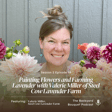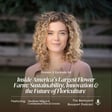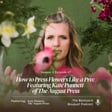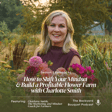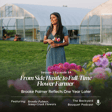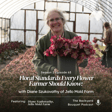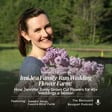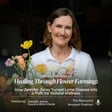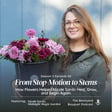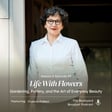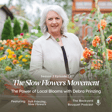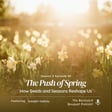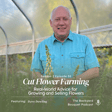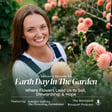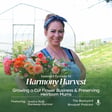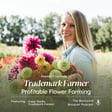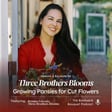
Ep.10: Cultivating Community With Urban Flower Farmer Dee Hall of Mermaid City Flowers
Have you ever wanted to start an urban or micro flower farm? In this episode of the Backyard Bouquet Podcast, we are joined by Dee Hall of Mermaid City Flowers as she shares her journey as a sustainable, urban flower farmer in Norfolk, Virginia. Dee shares the joys and challenges of growing native perennials, building a micro-flower farm on multiple urban plots, and fostering a sense of community among flower farmers. Discover the importance of supporting local growers, the beauty of incorporating native plants into arrangements, and the power of collaboration within the flower farming community. Gain insights into starting your own flower farm, exploring the world of native perennials, and finding inspiration in sustainable growing practices.
From the vibrant blooms of an urban flower farm to the beauty of native perennials, this episode is a celebration of the joy and wisdom found in cultivating flowers. Listen to the conversation to learn about the benefits of growing local, the impact of climate change on flower farming, and the value of creating connections within the flower farming community. Whether you're a backyard gardener or aspiring flower farmer, this episode will inspire you to let your backyard bloom and embrace the beauty of sustainable and regenerative growing practices.
In this episode, you’ll hear about:
00:01:29 - Dee Hall's Flower Farming Journey
00:06:36 - Utilizing Available Growing Spaces
00:07:19 - Community Flower Farming
00:08:57 - "Why Not Me?"
00:10:22 - Benefits of Creating Flower Farming Communities
00:14:34 - Childhood Influences on Flower Farming Passion
00:16:51 - Planning and Preparing for Flower Growing Season
00:19:43 - Favorite Flowers to Grow
00:22:33 - Managing Growing Spaces and Plots
00:26:29 - Flower Farming Business Model and Offerings
00:27:13 - Local Farmer's Markets
00:31:32 - Tidewater Flower Collective
00:36:33 - Local Flowers for Weddings
00:44:44 - Black Flower Farmers Collective
00:53:03 - Native Plants and Sustainability in Flower Farming
00:56:04 - Learning in Flower Farming
Episode 10 Show Notes
Dee Hall and Mermaid City Flowers:
- https://www.mermaidcityflowers.com/
- https://www.instagram.com/mermaidcityflowers
- https://www.blackflowerfarmers.com/
***Rate, Review, & Follow The Backyard Bouquet***
If you enjoyed this episode, will you please consider leaving the podcast a review? Your review helps make the podcast more discoverable to others and allows me to continue creating more episodes.
New episodes every Tuesday to help keep your garden blooming!
JOIN THE BACKYARD BOUQUET COMMUNITY ON FACEBOOK
https://www.facebook.com/groups/cutflowergardening
Sign up for my newsletter: https://thefloweringfarmhouse.myflodesk.com/nlw4wua8s3
The Flowering Farmhouse: Instagram | Facebook | Pinterest | Website
